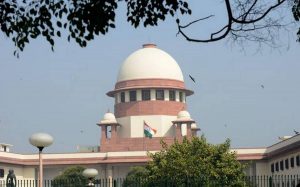What Is Sealed Cover Jurisprudence?

The Supreme Court, in the Media One ban case, has reiterated its intention to examine the legality of governments filing incriminating material in sealed covers without sharing the information with the accused/other party.
- The issue of “sealed cover jurisprudence” came up in the previous hearing on March 15, when the Centre wanted to pass on to the court its internal files regarding the ban in a sealed cover.
Sealed Cover Jurisprudence?
- It is a practice used by the Supreme Court and sometimes lower courts, of asking for or accepting information from government agencies in sealed envelopes that can only be accessed by judges.
- While a specific law does not define the doctrine of sealed cover, the Supreme Court derives its power to use it from Rule 7 of order XIII of the Supreme Court Rules and Section 123 of the Indian Evidence Act of 1872.
- Rule 7 of order XIII of the Supreme Court Rules: It is stated under the said rule that if the Chief Justice or court directs certain information to be kept under sealed cover or considers it of confidential nature, no party would be allowed access to the contents of such information.
- Exceptions:
- If the Chief Justice himself orders that the opposite party be allowed to access it.
- It also mentions that information can be kept confidential if its publication is not considered to be in the interest of the public.




